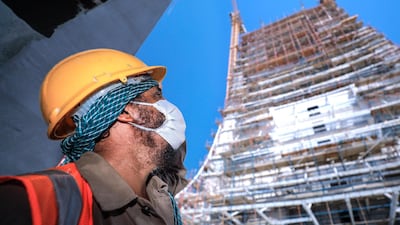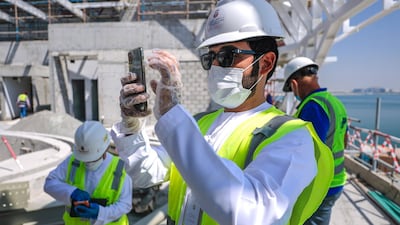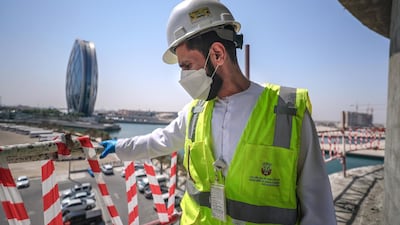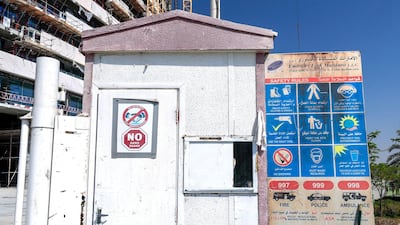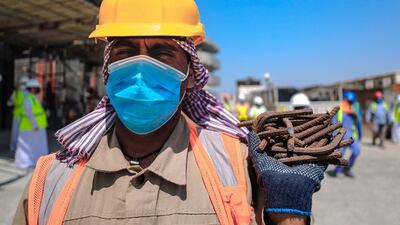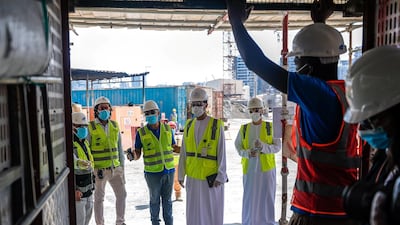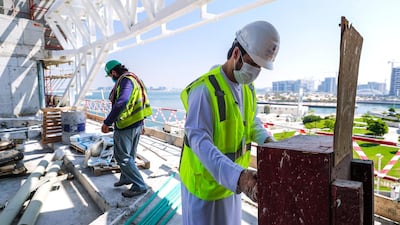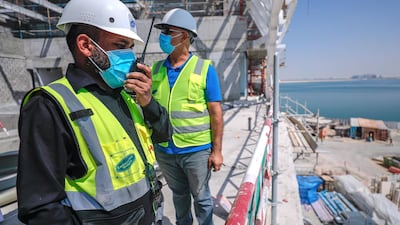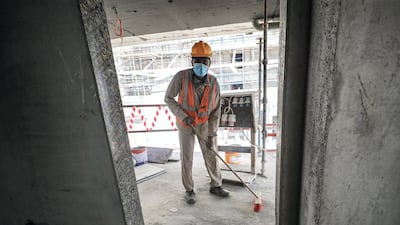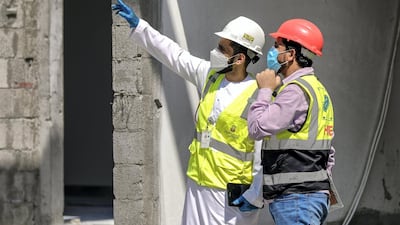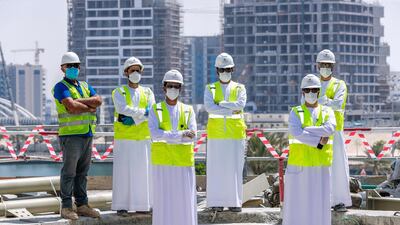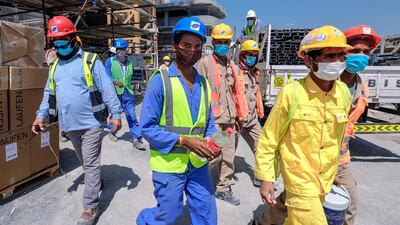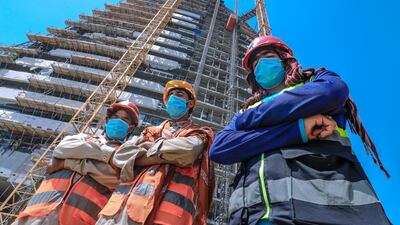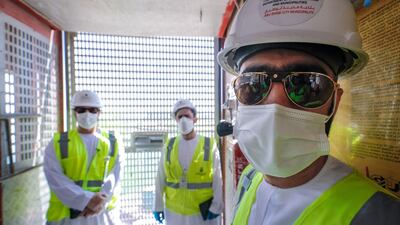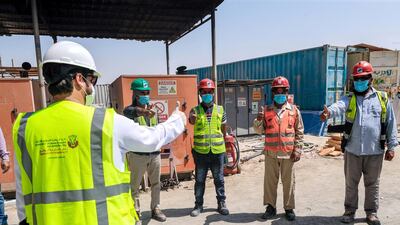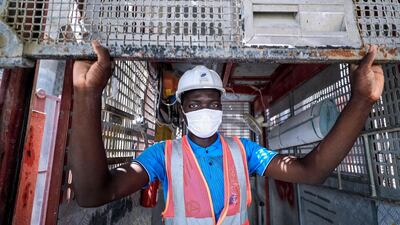Health and safety inspectors in Abu Dhabi visit hundreds of building sites each month to help protect workers operating at dizzying heights.
They check staff have all the equipment they need to keep them from harm, whether that is straps and harnesses or guardrails and nets.
The National accompanied engineers from Abu Dhabi Municipality on one such visit, to Sail Tower, a 21-storey building along Al Raha Creek.
“This is our 12th visit to this site this year because it is a major high-security building,” said Khaled Al Marzooqi, head of inspection at the municipality.
“Our main remarks here are that passageways need to be clear, for safe access.
“Also, if the edges are more than two metres high, there should be a handrail to avoid falls.”
The scaffold – a temporary structure erected for workers to stand on and to move construction material to higher floors – must be properly secured and signed off by a third party as safe to use.
Mr Al Marzooqi said the ladders that lead to the scaffold’s top levels should be checked daily before use.
“If a green tag has been placed on it, that means it is safe to use. If there is a red tag, it should not be used.”
He said working at height remains one of the most dangerous activities.
The inspectors assess all the slip-ups around scaffolds and tower cranes to ensure the workers are not at risk of falls or being hit by falling objects.
They examine resting areas on construction sites and also check whether workers are given personal protective equipment such as helmets and hard-soled, slip-resistant shoes, and face masks and gloves to prevent transmission of the coronavirus.
Company supervisors need to make sure the temperature of staff is checked daily before they start work and that they practise social distancing once on site.
Most sites in Abu Dhabi abide by safety regulations, Mr Al Marzooqi said.
While six to 10 inspections are carried out daily, about six sites are fined each month.
“In Abu Dhabi, contractors in general follow regulations. We are not issuing a lot of fines, but awareness [efforts] continue because it is a very important issue,” he said.
Mr Al Marzooqi said the most common offences include a risk of falling objects, a lack of PPE for workers and non-functioning fire extinguishers.
Those who flout rules can be fined up to Dh10,000.
The municipality uses simulation glasses to train construction supervisors and some other employees on how to avoid accidents.
“We have analysed the top 16 hazards and programmed them in a simulator, so the supervisors and workers can live the experience of how they should react if an accident were to occur,” he said.
The companies buy the simulation glasses and the municipality officers programme them.
“We have been applying this programme since the beginning of the year, and it has proven effective,” Mr Al Marzooqi said.
“The number of accidents have dropped because supervisors and workers are now more aware of what they could face.”
No fines or warnings were issued to those working on the Sail Tower.
The municipality conducted 1,900 inspection visits to construction sites in the first nine months of 2020 and hopes to reach the target of 4,000 by the end of the year.
